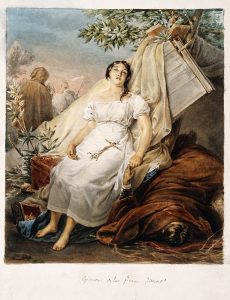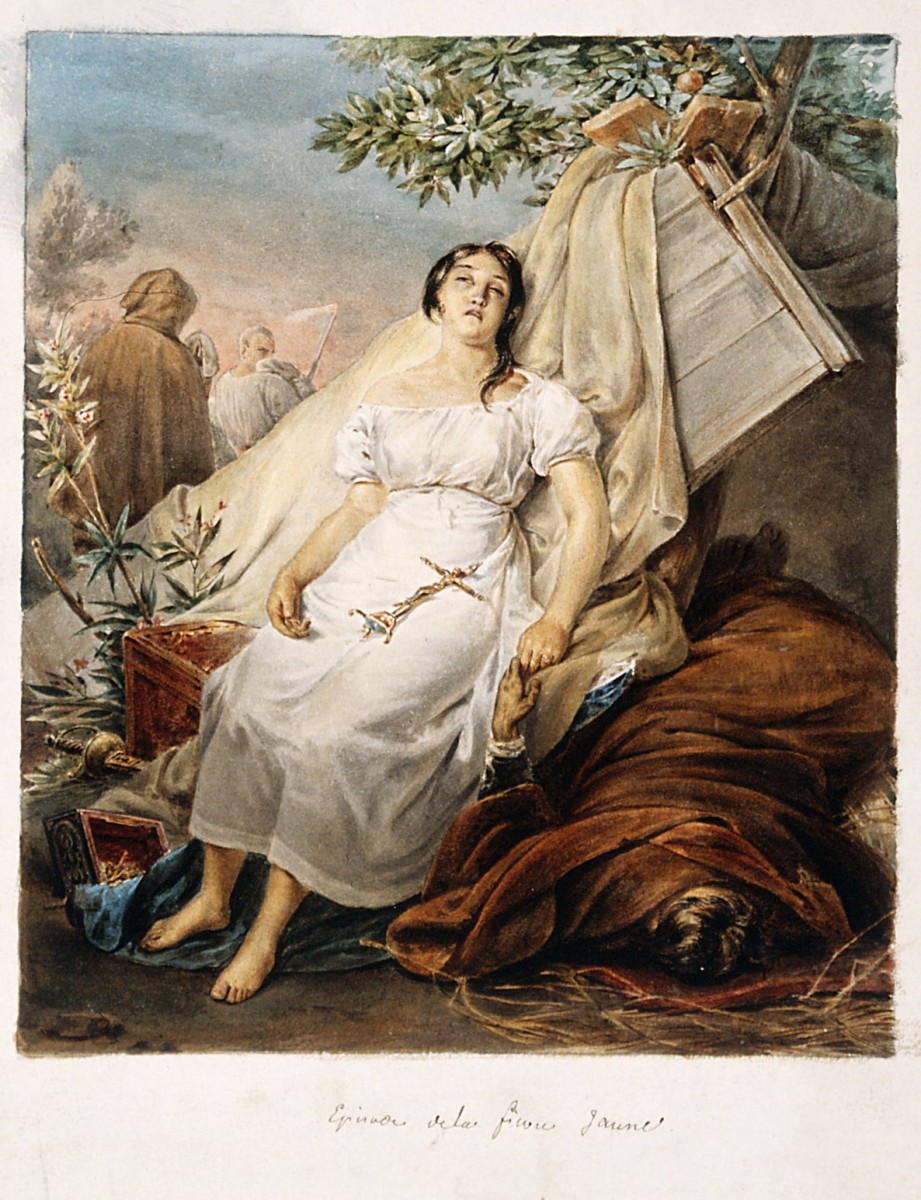The ancestor I am named for traveled to Norfolk, VA with his daughter Esther in 1800. They both died there of yellow fever and were buried there in an unmarked grave along with other victims of an outbreak not large enough to be considered notable, so common were such occurrences at that time. Though vaccination for smallpox was already possible, it would take more than a century for a yellow-fever vaccine to be developed. Its creator, Max Theiler, would receive the Nobel Prize in Medicine for it the year I was born, 1951.
Vaccines and preventive measures, awareness of epidemics, and knowledge of the need for research were widespread and welcome during my youth. Members of my own family had died of polio and I remember clearly the sugar cubes with pink (or maybe they were blue) drops of the Sabin vaccine within them and the remarkable relief they and the slightly earlier Salk vaccine engendered. Measles, mumps, chicken pox… these and other diseases were being eliminated or severely curtailed as I grew up.
The idea of being prepared as a nation for epidemics while fighting to stop them from occurring was taken for granted in my early days. National funds were used for planning, preparing and research. This was one area where Americans agreed that what affected one, affected all. Every one of us understood from personal or family experience the dangers contagious disease poses to groups and the individuals within them or to those coming into contact with them.
The idea of going on spring break and shrugging off a pandemic—as is happening now—would have occurred to very few Americans in the 1950s or 1960s. We knew what carriers were, had all heard of Typhoid Mary, and heeded the warning. We had experience of disease in a way that the generations beyond the baby boomers have not. We would never have dared call warnings about a pandemic a hoax—something paradoxical now as quite a few of my contemporaries are doing just that.

Oh, how quickly we forget!
Just as our parents had even greater knowledge of the benefits of vaccines and the dangers of contagion than we had, we baby boomers should be offering more knowledge in this area than our children and grandchildren can. Doing so should be extremely important to us, for we are apparently more at risk than younger people, making coronavirus perhaps more of a focus to us than it may be to the rest of the population.
But, no. Not always.
Perhaps it has gotten too easy to dismiss anything we don’t like as a “hoax” or as “fake news,” especially now that we have a president who bandies such accusations about on an almost daily basis. Anything that threatens our complacencies and sense of worth can be brushed aside, today, as we go about our solitary pursuits, secure within systems of protection we no longer acknowledge. Systems whose reactive powers we have allowed to erode because perception of the threats they keep from realizing upon us has receded.
What worries me is that, if we slow the spread of the coronavirus, bringing the incidence of COVID-19 at any one time to manageable levels, many people will start claiming that the reactions of both federal and state governments were well beyond what was needed. What also worries me is that too many of us feel this isn’t going to affect them, that others are going to feel the brunt and that we should be able to continue with our lives as was wish. It’s not our concern.
My ancestor Aaron Barlow traveled to Norfolk on business. He had certainly known about the large 1798 yellow-fever outbreaks in Philadelphia, Baltimore and further south—and that they hadn’t completely subsided. He certainly did not plan on dying when he took his trip and surely never would have put his daughter at risk. I don’t know why he felt his trip would be safe for him. Clearly, it wasn’t.
We don’t know, with disease, what will happen. But we can be careful when communicable disease threatens. My ancestor was only fifty years old, his daughter fourteen. They were robbed of what might have been decades of life.
I’m going to try to learn from my ancestor and stay home, as he should have done. I hope we can all do the same.





I totally agree. Currently there are still some people in Miami and Cancun on spring break which is crazy to me with all that’s going on, why would one put themselves and family at risk? The nonchalant attitude and careless mind set is what leads to ones demise at times.
I agree with it too. I think we should look at Italy and see what they are going through because they Didn’t take the warnings seriously at first. It’s not us teenagers that are more at risk. But we should look out for our family and elders.
Watch this from Governor Cuomo: https://youtu.be/2Leic5Hghzs
I agree with it, We need to stay at home and not put family and friends in danger. Reduce the frequency of going out, wear a mask, and wash your hands often. Coronaviruses are usually transmitted from person to person through coughing and sneezing, in close contact with infected persons, or on infected surfaces, followed by mouth, nose, or eyes. So we need to wear masks when we go out.
I agree that, from the Spanish pandemic in 1918 to the present, humans have not made any progress in the treatment of major viruses, and still maintain two methods of vaccines and quarantine. The development cycle of the vaccine takes a long time. The coercive force of the same country is very important. When you go out, the police can completely take you away, but it is impossible for every country to enforce the quarantine of everyone like China, because European countries are still human rights first, but I want to say that human rights are built on On the basis of life and people’s safety, if most people go out to infect each other, people with weakened immunity are even threatened with life
I agree with it. We should open the window every day for a period of time to enhance air circulation, which can effectively prevent respiratory infections. Avoid crowded places and wear masks if necessary. Avoid closed, airless public places and crowded places, especially children, the elderly, pregnant women and people with basic diseases. Wash your hands frequently, scrub with soap and water for more than 20 seconds, and use hands-free hand sanitizer to clean your hands when conditions are not available. If we have symptoms of respiratory tract infection such as cough, chest tightness, fever, cough and shortness of breath, you should wear a mask to seek medical treatment in time.
Italy did not take this epidemic seriously at the first time and they had the highest death rate till last month but we should have taken this seriously when we saw Italy going through this bad situation. Now United State is facing the epidemic and we have the highest death rate in the United States. I hope everyone is safe out there with their family and staying at home. We should stay at home at least for those who can not stay at home and serving the nation in this situation.
You are absolutely right!